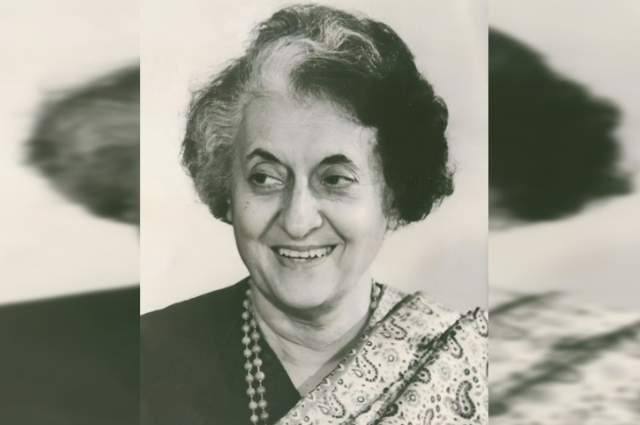On September 25, 1975, at Jawaharlal Nehru University (JNU), Ashok Lata Jay was elected as the Student Union Councillor amid escalating tensions. The campus roiled with unrest as the Student Federation of India (SFI) vehemently protested unjust expulsions. On the second day of turmoil, Prime Minister Indira Gandhi invoked a three-day state of emergency, casting a shadow of uncertainty over the nation for a prolonged month.
Amidst the aftermath, the author's release from imprisonment unfolded against the serene backdrop of JNU's School of Languages. Relaxing on the lawn near a black ambassador car, a figure approached, mistaking the author for DP Tripathi, the student union president. Despite clarifications, the interrogator, DIG P.S. Binder, accompanied by plainclothes associates, invoked the Maintenance of Internal Security Act (MISA), underscoring the stark reality of living under emergency rule. India has undergone profound transformations since 2014 under Prime Minister Narendra Modi's BJP government. Each day unfolds with new political and social shifts, reshaping the very fabric of our nation.
On February 9, 2021, a routine morning for the author was disrupted by a persistent doorbell. Standing at the threshold were officials from the Enforcement Directorate armed with a warrant, initiating an unprecedented 113-hour raid on News Click, the digital platform founded by the author in 2009. This extensive raid marked a significant episode in recent memory, highlighting heightened scrutiny faced by independent media outlets.
JNU's history bears witness to the 'emergency generation' activists like D.P. Tripathi, Ashoklata (usually called Ashoka), and Sitaram (Yechury), who played pivotal roles in resisting authoritarian regimes. However, today's 'emergency' presents different challenges. News Click, once a modest initiative, now faces unwarranted accusations of being 'disruptive,' echoing broader systemic challenges confronting digital and mainstream media alike.
The contrast between then and now is starkly ideological. The Congress's historical stance fostered perceptions of second-class citizenship among minorities, exacerbated during the emergency era. Since 2014, hate crimes targeting Muslims, Dalits, Adivasis, and women have surged, signalling a troubling shift in the nation's political landscape. The emergency period justified its actions as 'discipline,' akin to a 'festival' according to Congress rhetoric, masking its authoritarian nature. In contrast, contemporary challenges reveal a hollowing of constitutional values, empowering entities reminiscent of the emergency era's grip on power.
Today's assertive politics seeks to fragment society, marginalizing dissenting voices and promoting a divisive agenda. This trajectory stands in stark contrast to the pluralistic vision of India envisioned by our freedom fighters, advocating for an inclusive, secular nation.
The rise of Hindutva politics marks a departure from the inclusive ethos of the national movement, prioritizing Hindu supremacy over secular ideals. Symbolic changes like renaming streets and demolishing monuments reflect cultural hegemony amidst this ideological shift. In confronting this emergent threat, unity becomes crucial, exemplified by movements like the farmers' protests that bridge caste and communal divides. Such alliances pose ideological challenges to entities like the RSS and BJP, echoing the spirit of resistance during the emergency era.
Former inmates-turned-leaders during the Congress-led emergency era envisioned a different future, inspiring resilience against authoritarianism. Today, strategies to stifle dissent manifest through nuanced means, consolidating power and silencing dissenting voices. The tragic passing of 83-year-old Stan Swamy, unjustly imprisoned under spurious charges, epitomizes the plight of political prisoners. Such injustices demand global attention and judicial scrutiny, highlighting systemic abuses and rights violations.
As India navigates its current challenges, the echoes of the emergency era resonate deeply. The journey from 'Indhira-India' to contemporary times underscores the enduring struggle for democratic values and inclusive citizenship. This comprehensive narrative intertwines personal reflections with historical and contemporary insights, offering a poignant reflection on India's evolving socio-political landscape amidst persistent challenges to democracy and human rights.
Conclusion
In tracing the echoes of the emergency from 'Indhira-India' to the present day, the narrative reveals a continuum of challenges to democratic principles and human rights in India. The events at JNU and the subsequent raid on NewsClick serve as stark reminders of how authoritarian tendencies persist across different political epochs. The contrast between the emergency era and today underscores not just political shifts but also societal transformations, where marginalized communities continue to face heightened discrimination and violence. As we confront this emergent threat to pluralism and constitutional values, unity and resilience remain our greatest assets. Movements like the farmers' protests exemplify the power of collective action in challenging divisive policies and asserting democratic rights. The legacy of activists and leaders who resisted emergency rule continues to inspire courage in the face of adversity.
The tragic case of Stan Swamy and others unjustly detained underscores the urgent need for global vigilance and solidarity in safeguarding human rights. By amplifying voices of dissent and demanding accountability from those in power, we uphold the principles that define a truly inclusive and democratic India As we navigate these turbulent times, let us heed the lessons of history and stand firm against any erosion of democratic institutions. The journey from 'Indhira-India' to today is a testament to our resilience and commitment to a future where justice, equality, and freedom prevail for all citizens.

